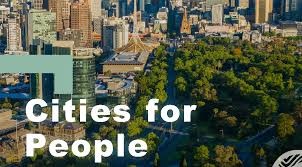How do you define a city? In the past, metropolis was referred to a city of origin of a colony or settlement. Metropolises in ancient times were the hub of cultural activities, commerce, and art. Alexandria, Babylon, Banaras, Jerusalem, Rome are well known examples of major cities of ancient times.
Global city is another popular terminology in use today. The term global city was first coined by Saskia Sassen, an American sociologist, who referred this word to Tokyo, London and New York for the global impact these major cities have on the world economy.
Right through the ages estimating a city’s population has been a very tough task indeed. Historians, archeologists, economists, and sociologists have attempted many means to figure out the population of major cities throughout the world. Yet, the accuracy always remained questionable and controversial. The reasons are not too difficult to guess. How does one come to grips with the actual area devoted to housing, and most of all can anyone define the real jurisdictional limits of a city? Take for example a major city like Los Angeles, which has complex boundaries.
It has a continuous built-up settlement covering area from the northern tip of Mexico and along the southern coast of California. Even coming to an educated guess of the population of Los Angeles is no mean task.
Today, there are many cities the world over with large populations. All do not have significant impact on the affairs of the world. Considering this aspect some economists and sociologists have affixed certain criteria for classifying metropolises as world cities. You may even call them global cities. The major criteria are:* Economic characteristics. Global cities have distinctive edge over others with regard to having headquarters of multinationals located, stock market indices and market capitalization, and significant financial capacity.
* Political uniqueness. Global cities stand out by having hosted major international summits on economic and political affairs and other international events like Olympiads and other global sports events. Major cities coming under this category also have a high quality of life and also many expatriate communities.
* Infrastructural distinctiveness. Global cities have excellent rapid mass transport systems, advanced communications infrastructure, and international airports having connections to all major airports in the world.
Major metropolises play a prominent role in creating a brand name for the resident country. Moreover, the image and the economic environment of major cities play a significant role in capital inflows into the countries for economic development.
Discover more from Personal Blog of Richard Tong
Subscribe to get the latest posts sent to your email.





woh I am pleased to find this website through google.